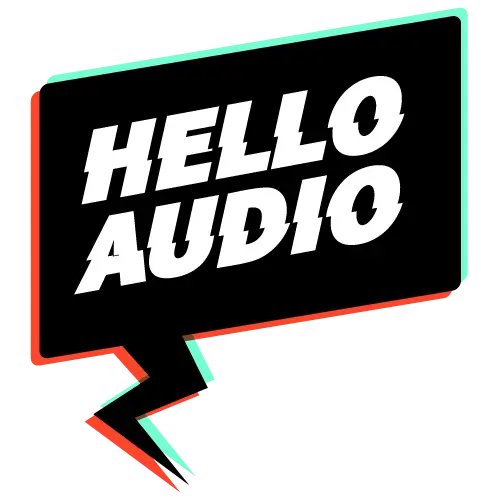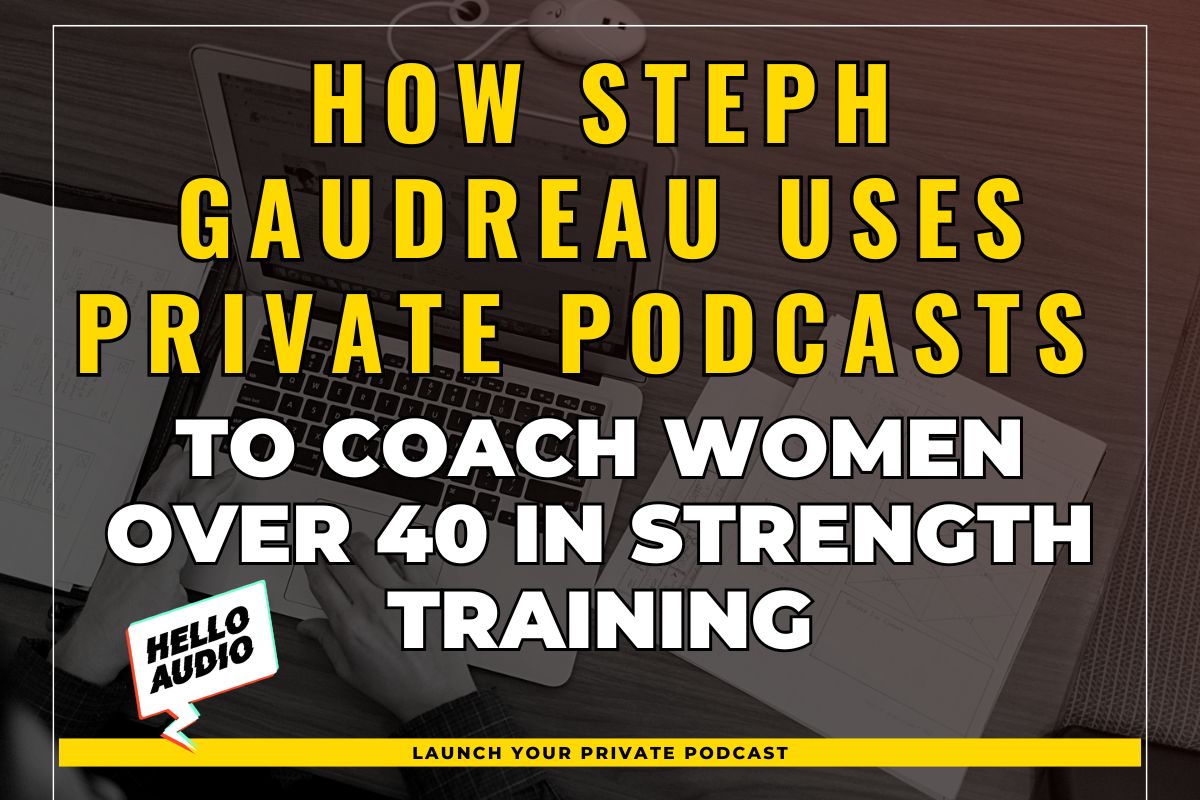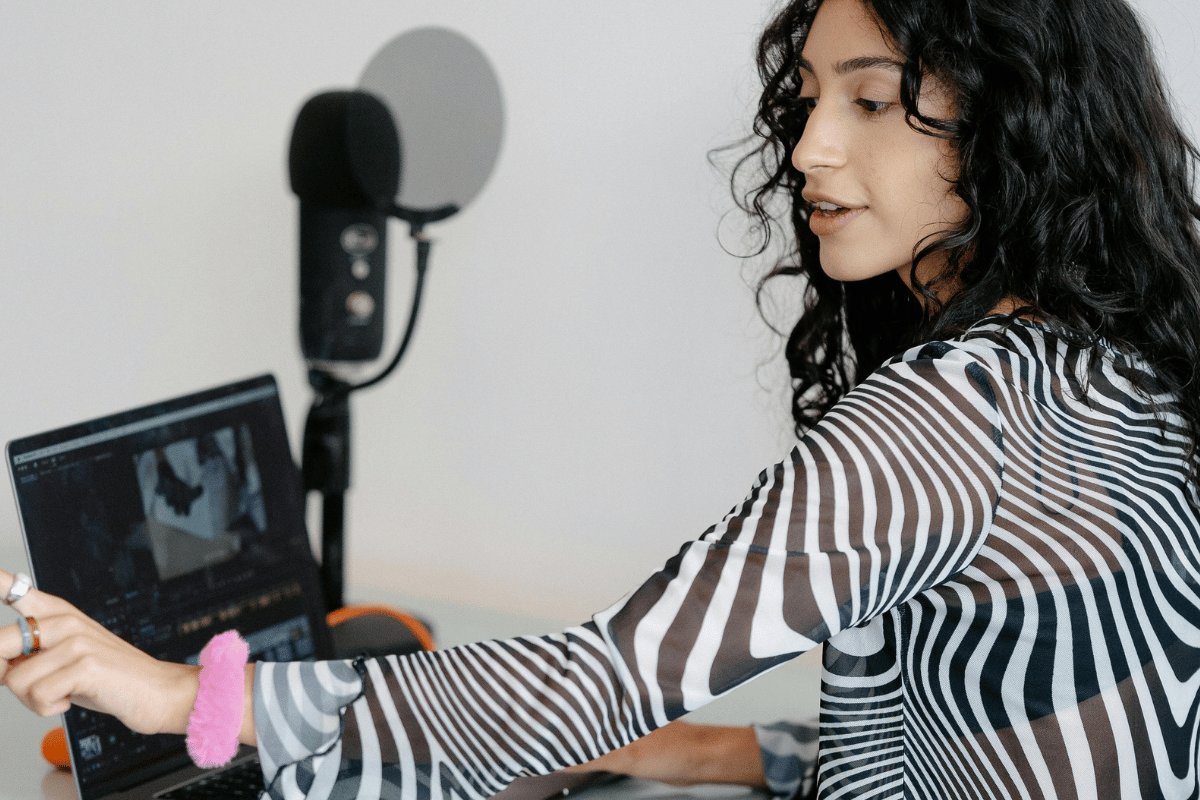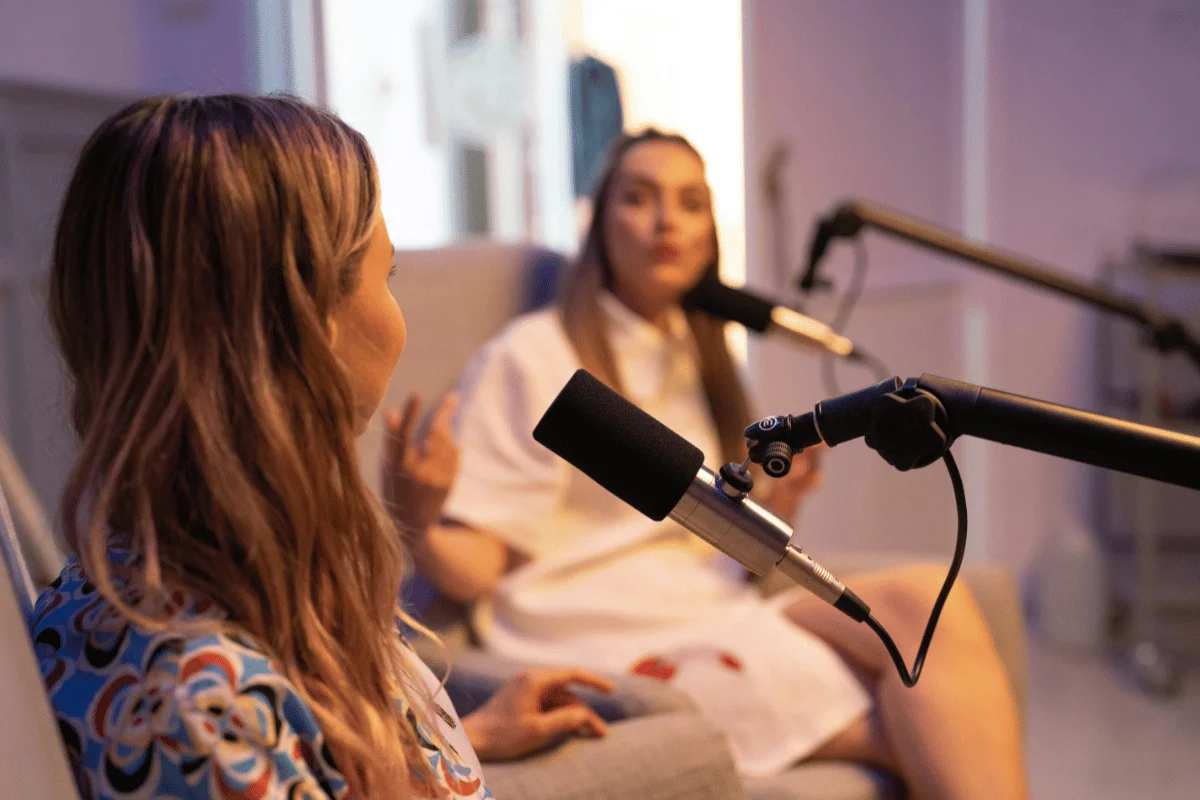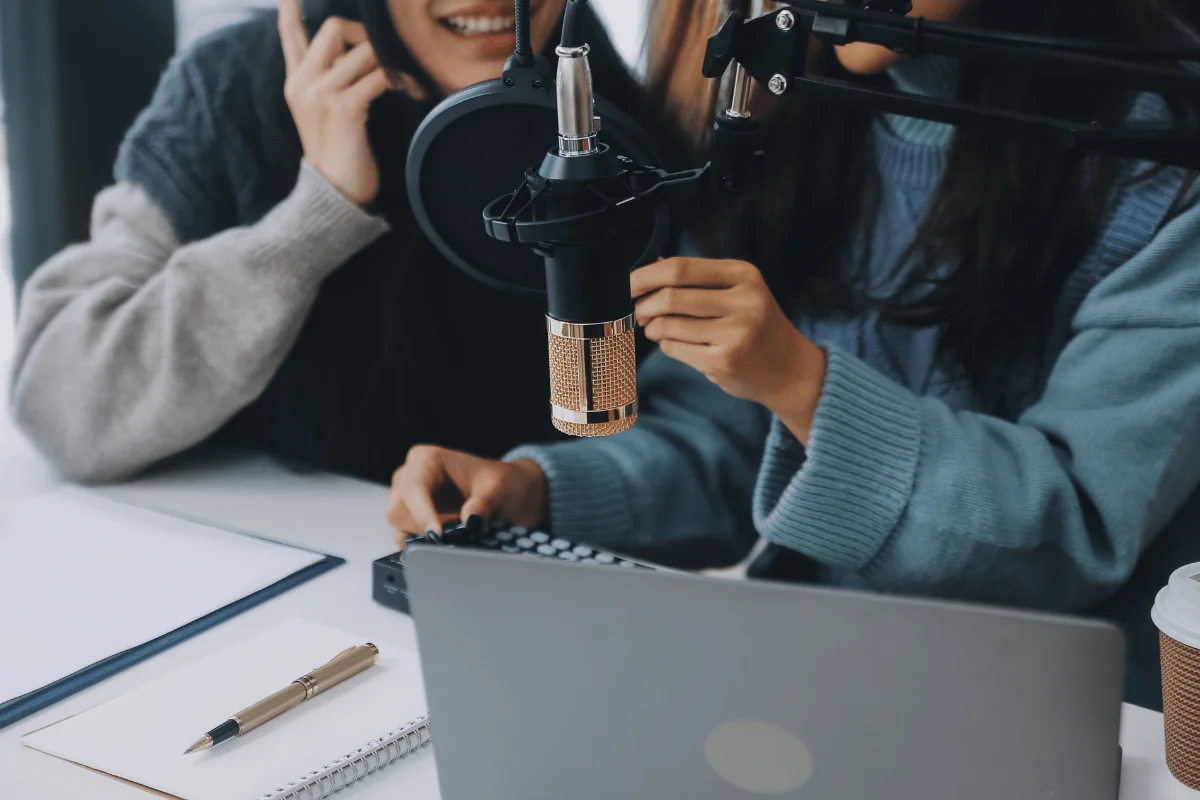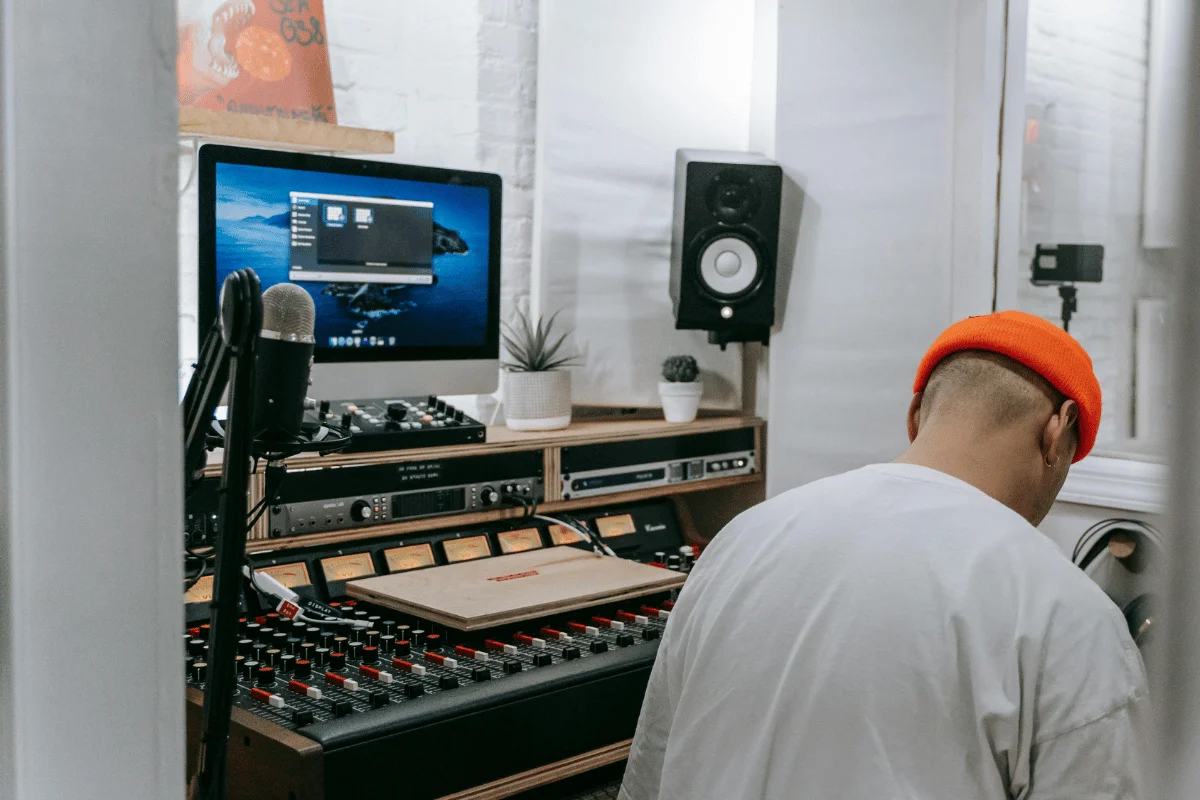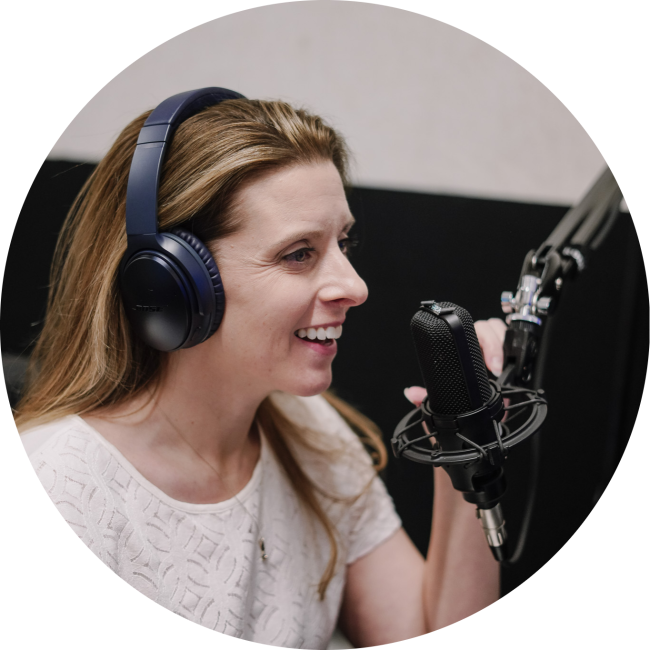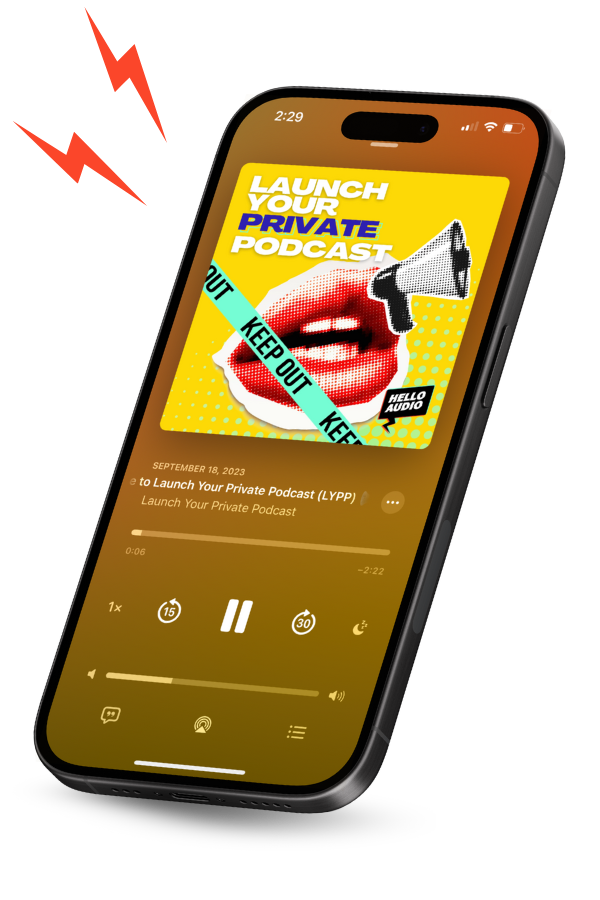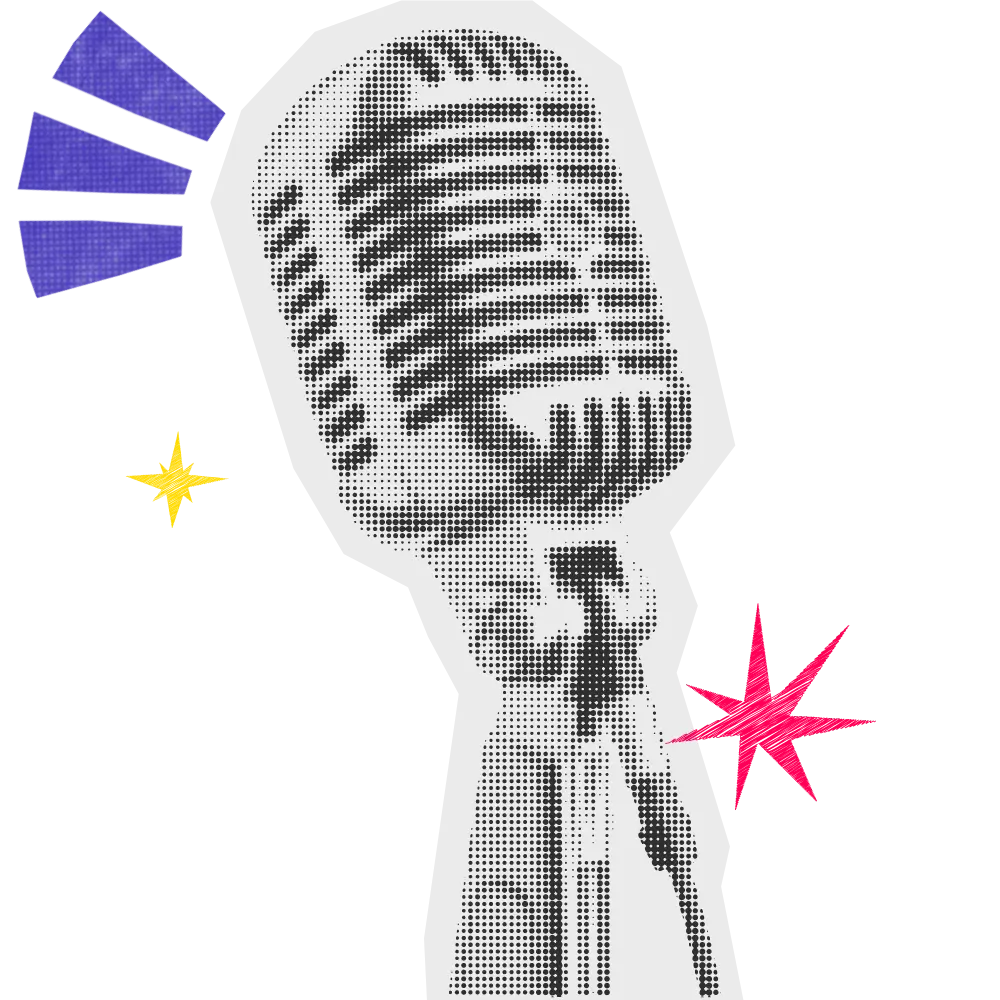Are you curious about how to monetize a podcast and turn your passion into profit?
This guide will show you everything you need to know about strategy. So, if you want to learn how to get paid to podcast, read on, and you’ll discover the nuances of:
- Direct and indirect monetization
- Sponsorships and exclusive content
- Podcasting platforms that make the difference
Let’s help you make your podcast outstanding and profitable.
TL; DR – How to Monetize a Podcast
The short answer on how to make money with podcasting is combining great content with a dedicated audience and having a savvy strategy from the get-go. Here’s the concise version of the process before we delve into all the details:
- Niche Down: Identify a niche you’re passionate about to attract a dedicated audience and sponsors.
- Understand Your Audience: Deeply know your listeners to create resonating content and obtain relevant sponsorships.
- Plan Your Content: Ensure consistent, high-quality episodes based on a content calendar and consider repurposing content into podcasts.
- Invest in Good Equipment: Prioritize decent audio quality with a good microphone and editing software.
- Build a Brand: Develop a robust and recognizable brand for your podcast with a catchy name, professional artwork, and a compelling description.
- Market Your Podcast: To grow your audience, use various channels, such as social media, SEO, guest podcasting, and collaborations.
- Choose a Monetization Strategy: Plan how to monetize your podcast through ads, sponsorships, merchandise, crowdfunding, or premium content.
- Leverage Analytics: Use podcast analytics to understand your audience better and tailor your content and monetization strategies.
If you’re ready to turn your content into profit, sign up with Hello Audio. Our platform lets you convert media files into audio and deliver them in popular podcast apps like Google and Apple Podcasts, Podcast Addict, and more. The more listeners there are, the higher the chances of more profits.
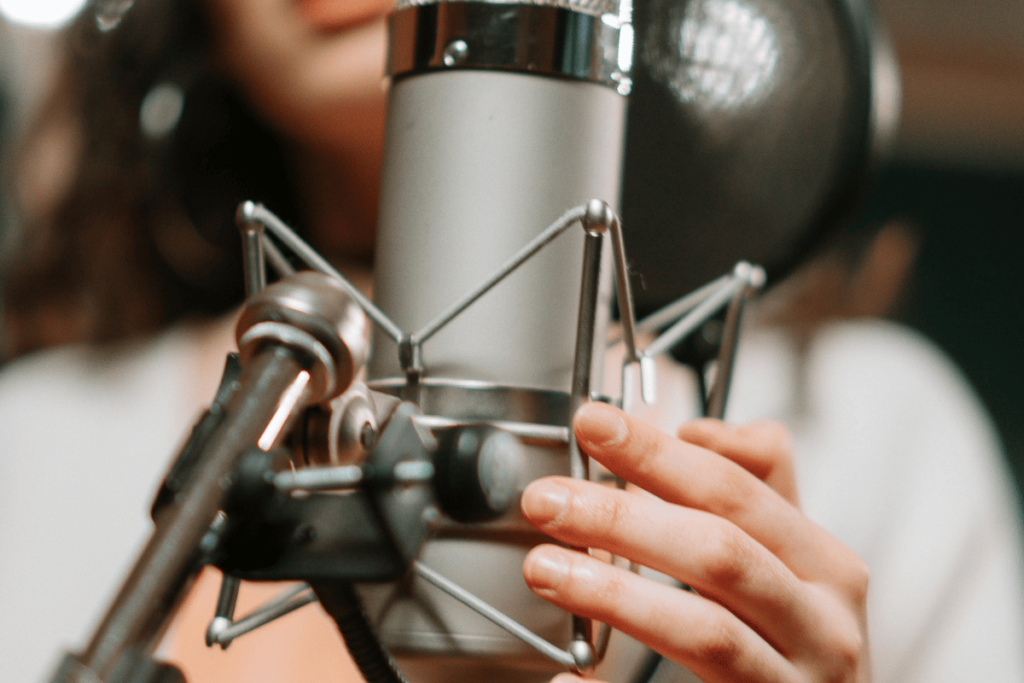
Are Podcasts Profitable?
Podcasts can earn you anything from pennies to thousands of dollars.
According to Forbes, the five top-earning podcasters earned a total of $70 million from their flagship titles within a year. No. 1 was Joe Rogan, with $30 million for his “The Joe Rogan Experience,” which has 190 million monthly downloads.
But before you see the cash roll in, you need great content, a solid audience, and smart monetization strategies. While only some podcasters become millionaires, with the right approach, podcasts can make money for many people.
DID YOU KNOW?
One answer to the question of how to make a podcast profitable is branded podcasts. Such podcasts contain ads that listeners want to hear and respond to. 75% of listeners acted upon a sponsored message!
How Long Does It Take For A Podcast To Make Money?
The journey from starting a podcast to making money can vary a lot. Generally, it might take a few months to a year to start seeing some cash flow.
It depends on how you build an audience and attract sponsors or advertisers. Patience and consistency are your best friends. Keep at it; with some hustle, your podcast can earn money.
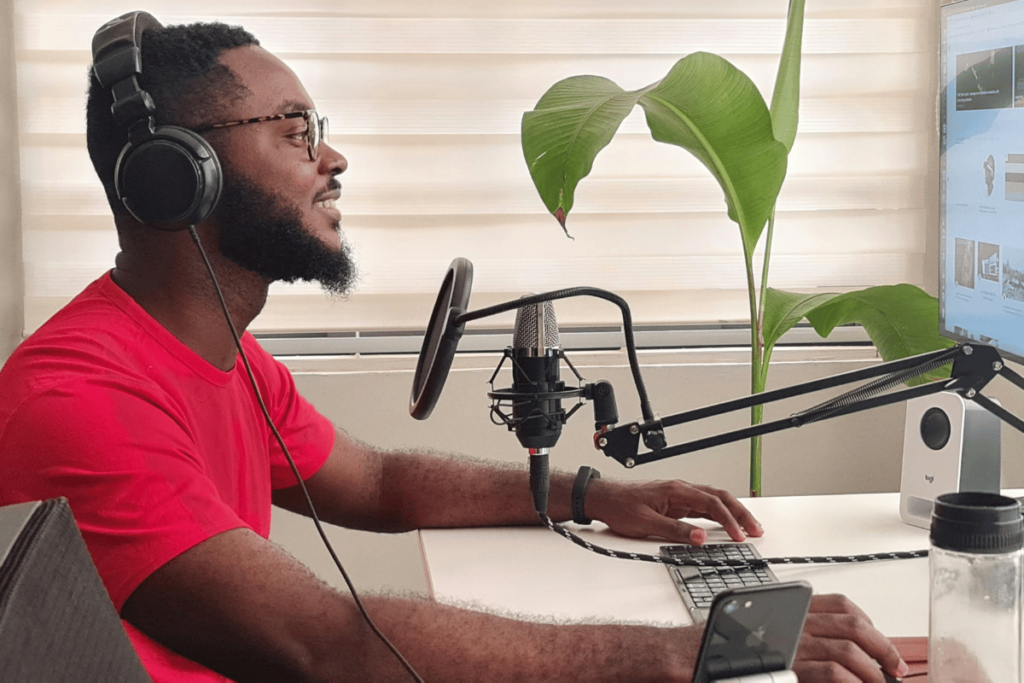
How Do Podcasts Make Money?
Podcasts can generate revenue through various avenues, including sponsorships, ads, and merchandise related to the show. As you build a loyal audience, you can also introduce premium content subscriptions.
All these are types of the following broader strategies of podcast monetization:
Direct vs. Indirect Podcast Monetization
Making money off podcasts can fall into two main categories: direct and indirect monetization. As you’ll see below, each path has its strategies and benefits, depending on your audience size, niche, and personal or business goals.
Direct monetization
When looking straight at your podcast for revenue, you’re doing direct monetization. This approach is hands-on and focuses on turning every episode into an opportunity to earn, using:
- Sponsorships and ads: Companies pay to feature their products on your show.
- Premium content: You charge your listeners for exclusive episodes or content access.
Indirect Monetization
Indirect monetization strategies might not fill your wallet directly from podcast plays, but they’re equally powerful. This method involves using your podcast as a springboard for other revenue-generating activities such as:
- Services and products: Promoting your business offerings through your podcast.
- Affiliate marketing: Earning commissions by promoting other people’s products.
- Speaking gigs: Leveraging your podcast fame for paid speaking opportunities.
- Merchandise: Selling branded goods related to your podcast.
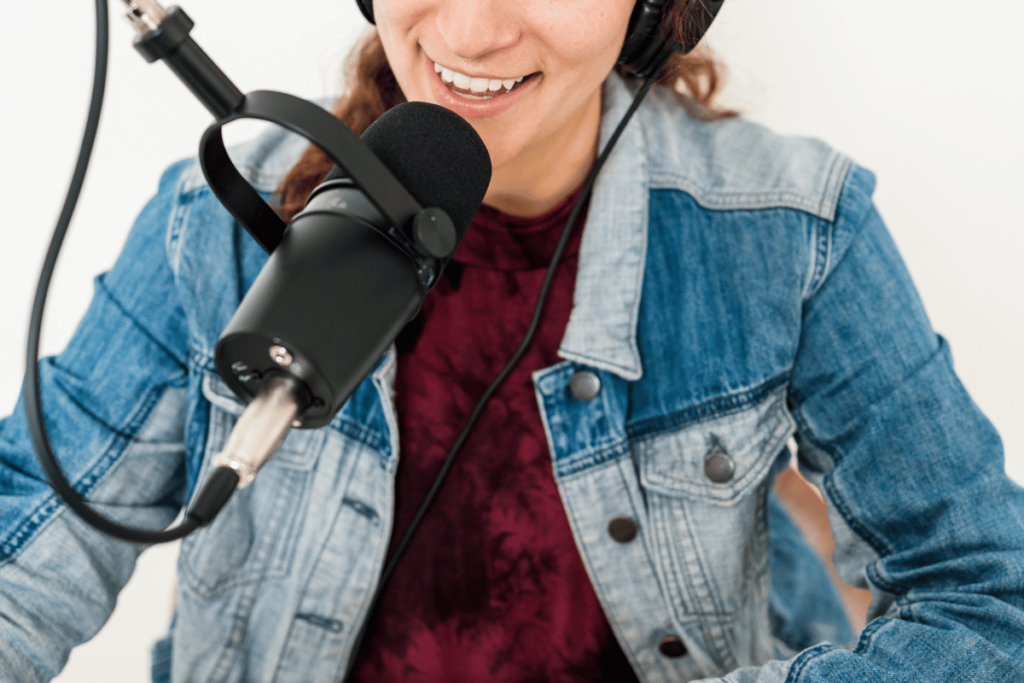
How to Get Sponsors For a Podcast
First, to catch the eye of sponsors, ensure your podcast shines with quality content and a solid listener base.
Engage your audience through social media and understand who they are. This data is gold for potential sponsors, and you can use it to craft a killer pitch highlighting your podcast’s value and reach.
Networking is also crucial, so don’t shy away from industry events or podcasting communities.
How Much Do Podcast Sponsors Pay?
Sponsors typically discuss the payment structure and tiers with the podcast host in advance. Most commonly, it’s a cost per thousand listens, known as “cost per mille” or CPM, between $25 to $40. Alternatives include:
- Flat fee: Podcasts with smaller, highly engaged audiences can charge a fixed amount that sponsors pay upfront for a given sponsorship period.
- Performance-based: Payment relates to specific actions listeners take, like using a discount code or visiting a landing page (affiliate marketing).
Sponsor payments hinge on your podcast’s reach, engagement, and specific deal structure.
You might negotiate higher rates if your podcast targets a niche audience with high engagement.
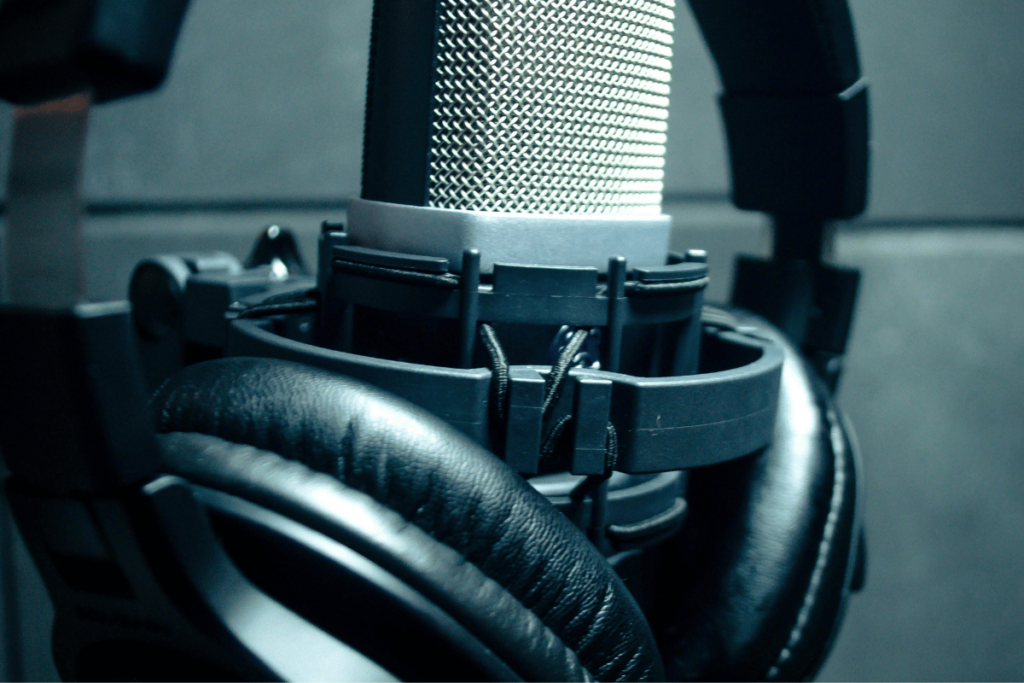
Best Podcast Platform For Monetization
Finding the right platform can make all the difference, especially when you want to monetize your podcast.
While several platforms offer unique features and audiences, private podcasts on Hello Audio stand out for their monetization potential. This approach provides a tailored experience for your listeners and enables monetization strategies like subscription-based access, sponsored content for niche audiences, or exclusive premium episodes.
Leveraging Hello Audio for private podcasts will provide you with all the monetization opportunities you need to succeed. This one-stop shop for creators allows you to:
- Convert any content you have into audio podcast episodes
- Make it private so you can control who’s going to listen, for free or a fee
- Push them to popular podcast apps like Spotify, Apple Podcasts, etc.
How to Monetize a Podcast Using Hello Audio
Monetizing with Hello Audio is easy because you can turn any content into audio and put it behind a paywall. This controlled access, combined with personalized content, allows you to create valuable subscription-based or exclusive offers that attract listeners.
Here are a few materials you can upload as audio episodes on the platform to make money:
- Courses, books, and lead magnets for ideal customers
- Coaching call replays
- Keynotes or summit speeches from virtual events
- Blog content, emails, and newsletters.
Our homepage shows many success stories, including Angie Jordan’s, who turned her webinar with low show-up rates into an audio sale event. She advertised her private podcast as a three-day event, and it sold out in 3 days.
And the best part? You don’t need to be a tech whiz to get started. Our super user-friendly platform makes it easy for anyone to launch a podcast and share their knowledge with a select audience willing to pay for it.
DID YOU KNOW?
Over 70% of all new Hello Audio users launch their first audio feed in less than 24 hours.
Watch this instant demo to see how this platform works.
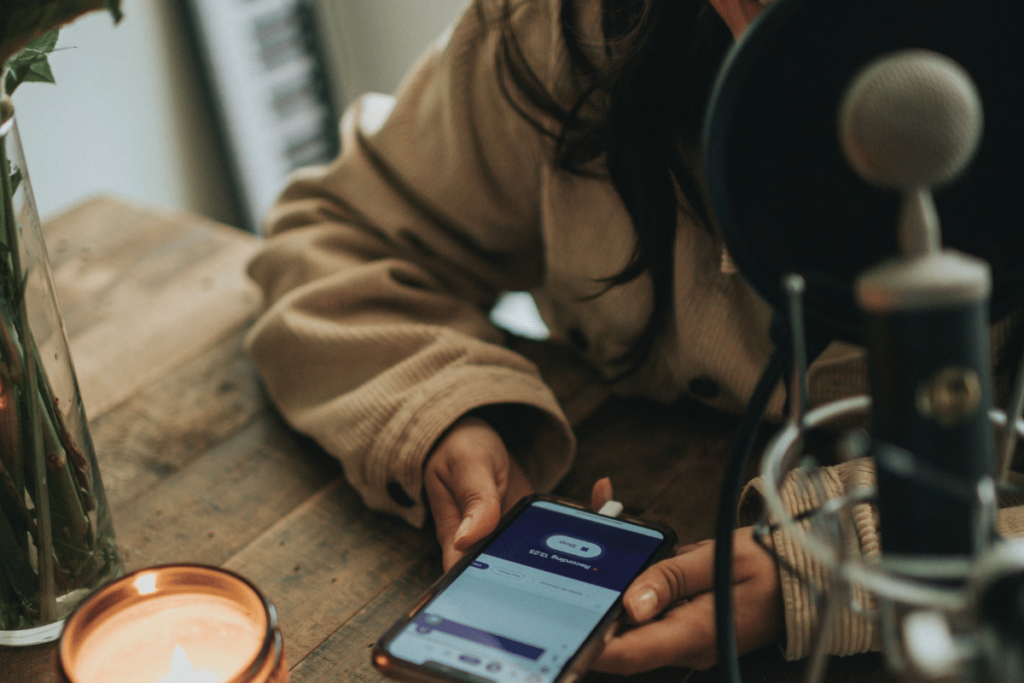
How to Monetize a Podcast on Spotify
Spotify is a growing platform for podcasters looking to tap into diverse revenue streams. However, monetizing your podcast on this platform requires following some rules and experimenting with its revenue channels.
Spotify Podcast Monetization Requirements
Before it shows you dollar signs, Spotify has a checklist to ensure your podcast is ready for monetization. Here’s the gist of it:
- Eligibility: Your podcast must meet Spotify’s content policies. There are no shortcuts here; they’re pretty strict about quality and legality.
- Audience size: Building and maintaining a dedicated audience base is essential for unlocking revenue potential. Spotify requires you to have at least 100 listeners in the past 60 days.
- Content: Two published episodes are the minimum requirement to get started with monetizing your podcast.
Do Podcasters Get Paid on Spotify?
The big question! Yes, podcasters can earn money on Spotify, but how? Let’s break it into bite-sized pieces:
- Sponsorships: Partner with brands that resonate with your podcast theme. The better the fit, the more lucrative the sponsorship deals you can secure.
- Subscription model: Spotify allows creators to offer subscription-only content, such as exclusive episodes or early access for the most dedicated fans. This model enables podcasters to generate direct revenue from subscribers who value exclusive content.
- Listener support: Listeners can make regular donations to a podcaster they choose to support.
- Ads: Spotify lets podcasters include ads in their episodes and share revenue generated from these ads.
DID YOU KNOW?
For legal reasons, Spotify monetization features can only be used by podcasts that don’t feature third-party music.

How to Monetize a Podcast on YouTube
YouTube is a vast platform for podcasters to expand their reach and pocketbook. To get started, familiarize yourself with the YouTube Partner Program (YPP). It’s your golden ticket to monetization features like ad revenue, channel memberships, and Super Chat.
You can only enter the YPP if you live in a country where this program is available and:
- Have no active strikes on your channel related to “Community Guidelines.”
- Keep your Google Account’s 2-step verification active.
- Have at least 1,000 subscribers.
- Have 4,000 valid public watch hours in the last 12 months OR 10 million valid public ‘Shorts’ views in the previous 90 days.
- Adhere to all YouTube monetization policies.
- Link an AdSense account.
Once you’re part of the YPP, several doors open up for monetizing your podcast on YouTube:
- Ad revenue: Run ads before, during, or after your podcasts. You can tweak the ad experience to suit your content and audience.
- Channel memberships: Offer exclusive perks to subscribers for a monthly fee. It can be custom emojis, badges, or special shoutouts during your podcast.
- Super Chat & Super Stickers: Viewers can purchase Super Chats or Super Stickers to highlight their messages during live podcasts. Creators earn a share of their viewers’ payments, which varies depending on various factors, such as the value of the purchase and the duration of the live stream.
TIP: A loyal audience is more likely to support your podcast through memberships, Super Chats, and simply by watching ads. So, engage with your audience through comments, live Q&As, and content created based on their feedback.
iTunes Podcast Monetization Strategies
iTunes, now known as Apple Podcasts, offers avenues to turn your podcast into a revenue-generating machine. The two main ways for creators to offer premium content on Apple Podcasts are:
- Exclusive access: Offer bonus episodes, ad-free listening, or early access to episodes exclusively for subscribers.
- Flexible pricing: You set the subscription price, offering monthly or annual options to your audience.
TIP: Using exclusive content and flexible pricing is an effective way to grow your audience and your brand.
While Apple doesn’t directly pay podcasters, you can leverage your presence on the platform to:
- Attract sponsorship deals: Partner with brands that resonate with your audience and earn a commission for the ads you integrate into your episodes.
- Do affiliate marketing: Promote products or services and earn commissions for conversions or sales made through your podcast.
Alternatively, you can engage your audience’s support directly through:
- Patreon or similar platforms: Direct the listeners to your Patreon page for exclusive content or perks in exchange for their support.
- Direct donations: Use platforms like PayPal or Buy Me a Coffee to accept direct contributions from your listeners.
Want to know the difference between Buy Me a Coffee and Patreon? Check out our detailed comparison of Buy Me a Coffee vs. Patreon.
Other monetization options include creating and selling podcast-branded merchandise or repurposing your podcast content into books, ebooks, online courses, and webinars.
Which Podcast Platform Pays the Most to Creators?
There’s no simple answer! Payments often depend on your ability to leverage various monetization strategies, such as sponsorships, ads, listener donations, or subscription models.
That’s why the smartest podcasters spread their wings across different platforms. They combine the power of listener support with some sponsor deals and a sprinkle of ads.
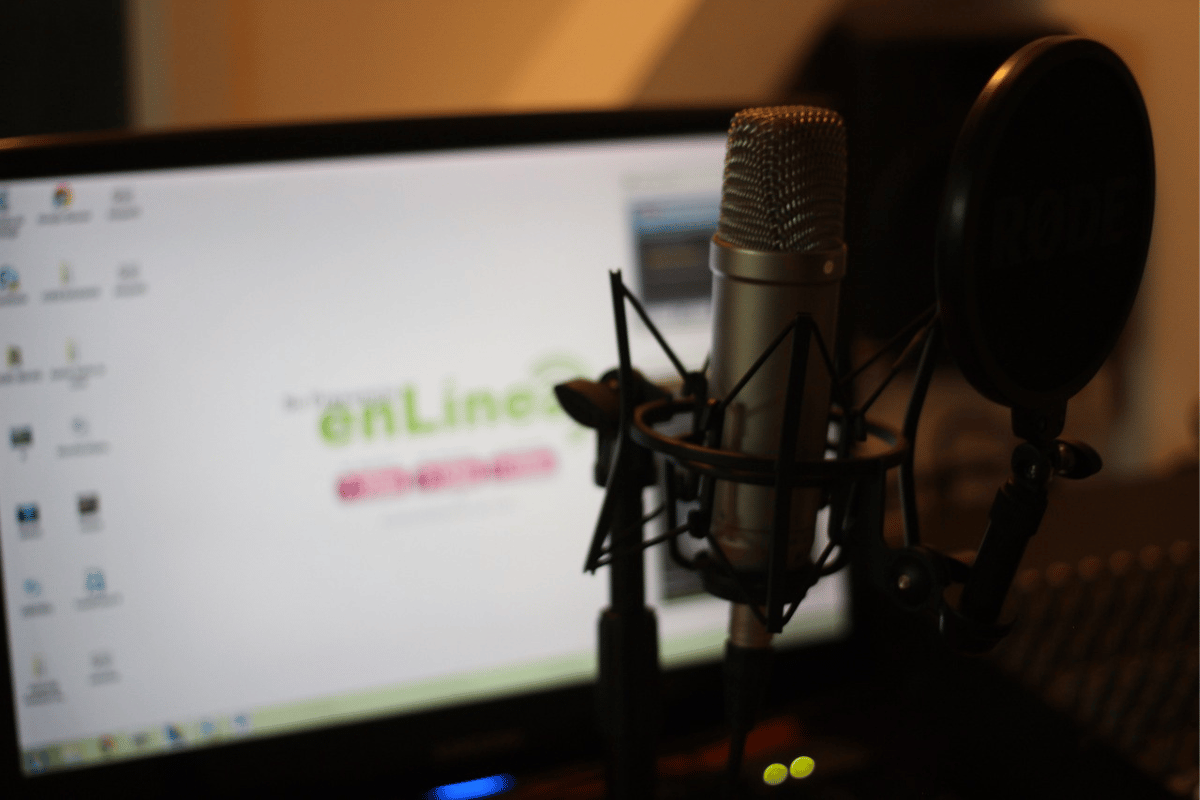
How to Make a Profitable Podcast
Creating a profitable podcast starts well before hitting the record button. It’s about laying the groundwork to ensure your show reaches the right ears and opens multiple revenue streams.
Here’s how you can set the stage for a podcast that is ready to make some noise in the market and your bank account.
1. Niche Down
A well-defined niche helps you stand out and attract listeners and sponsors interested in that particular topic.
Identify a specific niche you’re passionate about that has a dedicated audience. Equally important, think about the unique perspective or value you can provide to spark interest and loyalty.
2. Understand Your Audience
Knowing who you’re talking to helps you create content that resonates more deeply with listeners and appeals to sponsors targeting that demographic.
So, understand your audience’s interests, problems, and what they value in a podcast.
3. Plan Your Content
A consistent publishing schedule is key to building and retaining an audience.
Plan your episodes ahead of time, focusing on quality and relevance to your audience. Consider batching recordings to maintain a schedule without effort.
4. Invest in Good Equipment
While you don’t need a studio-grade setup from day one, decent audio quality is non-negotiable. The least you can do is invest in basic podcasting equipment, especially a good microphone and editing software.
These two can make your podcast a pleasure to listen to and keep listeners coming back for more.
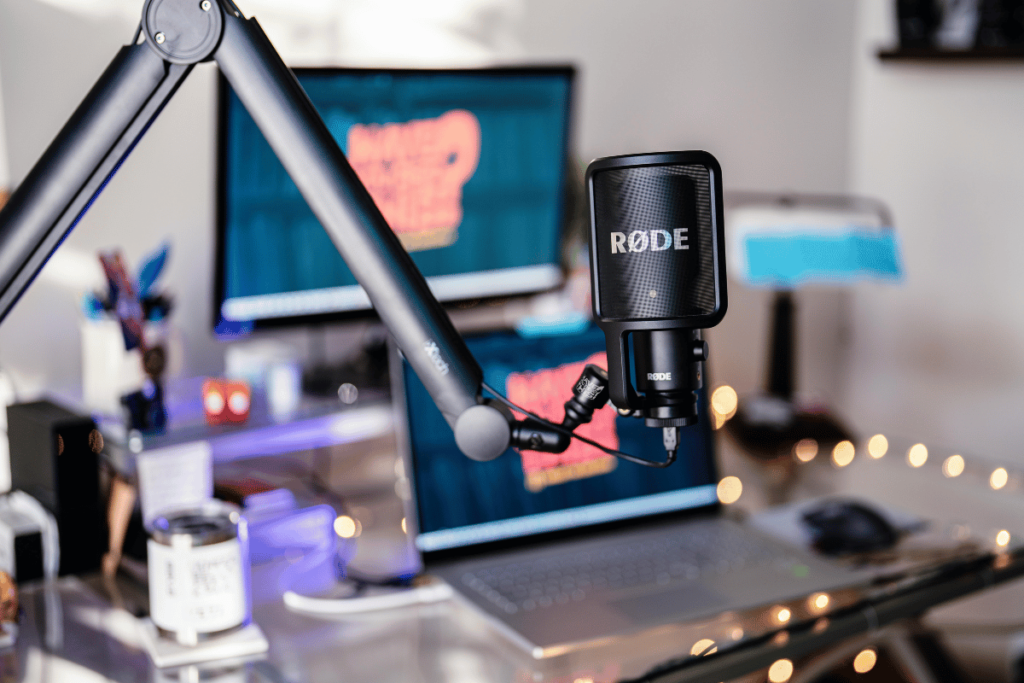
5. Build a Brand
Create a recognizable brand with a catchy name, professional artwork, and a compelling podcast description. A strong brand helps attract listeners and makes your podcast more enticing to potential sponsors.
6. Market Your Podcast
A great podcast won’t make a dime if no one knows it exists.
Market it using social media, SEO, guest appearances on other podcasts, and collaborations. Building an email list can also be a powerful tool for directly engaging your audience.
7. Choose a Monetization Strategy
Think about your monetization strategy from the start. Options could include ads, sponsorships, merchandise, crowdfunding, or premium content.
Each has its own set of requirements and benefits, so consider what best aligns with your podcast and audience.
8. Leverage Analytics
Knowing your numbers can help you tailor your monetization strategies effectively. Use podcast metrics and analytics to understand your audience better, refine your content, and prove your value to potential sponsors.
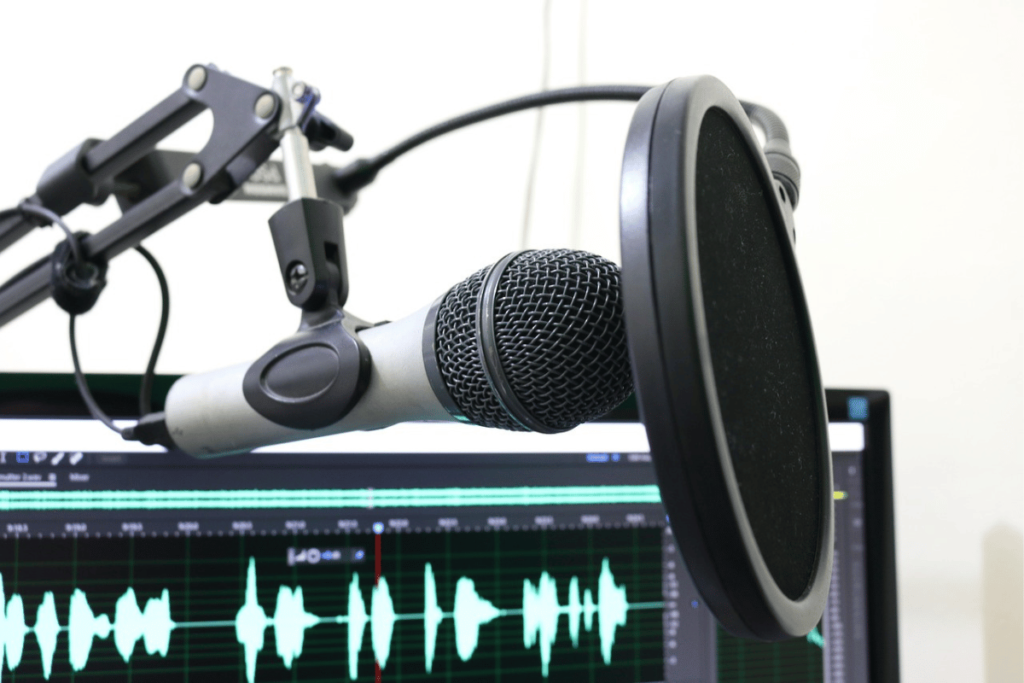
Frequently Asked Questions (FAQs)
The following frequently asked questions will tell you what else you should know about how to monetize a podcast.
How Many Listeners Does a Podcast Need to Make Money
A podcast generally needs around 1,000 listeners per episode to attract sponsorships and generate revenue. However, you can monetize through direct support or premium content even when you have less than 1,000 listeners. The key is to have a highly engaged or niche audience that responds well to your content.
YouTube vs. Podcast Income – What’s More?
Due to its massive user base, YouTube may offer a broader range of monetization options and potentially higher visibility. However, podcasts can command higher sponsorship rates for niche audiences.
The best platform depends on your content, audience, and preferred monetization methods.
Conclusion
Turning your podcast into a source of income doesn’t have to be a distant dream. With the right approach, dedication, and a touch of creativity, the possibilities are endless.
Whether you’re exploring direct revenue streams or innovative platforms for content distribution, the key is to start.
Hello Audio is the best place to start. It offers a user-friendly platform for creators of all technical levels. You can launch your content in minutes, reach audiences through their favorite podcast apps, and personalize content and access for wider reach and monetization possibilities.
Why wait? Embrace the future of podcast monetization by signing up for Hello Audio today.

